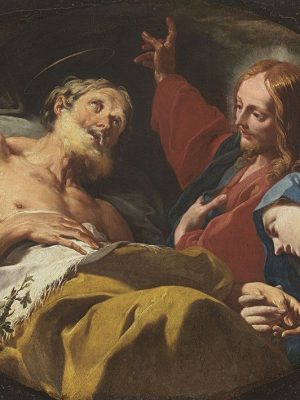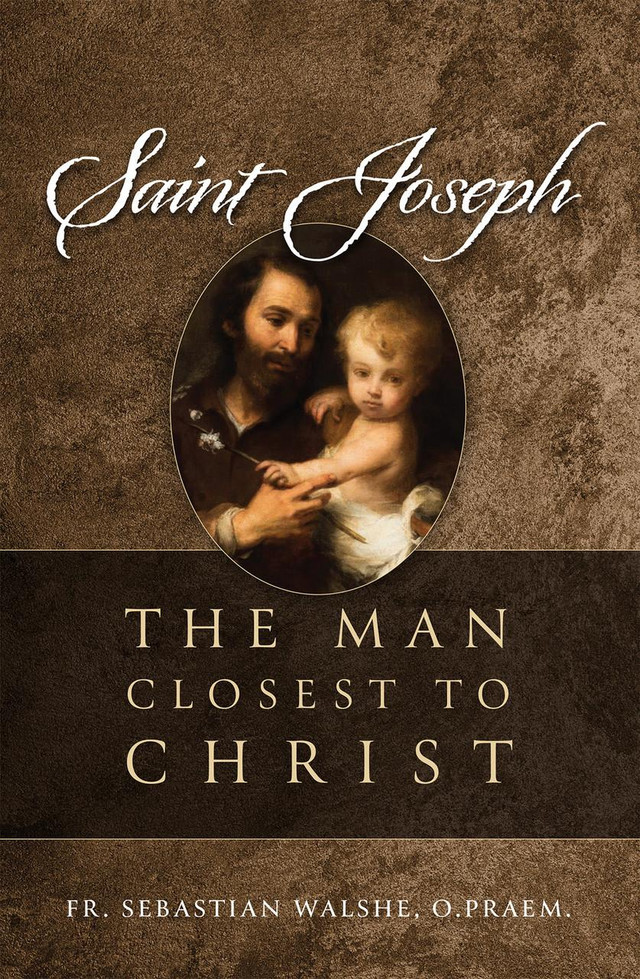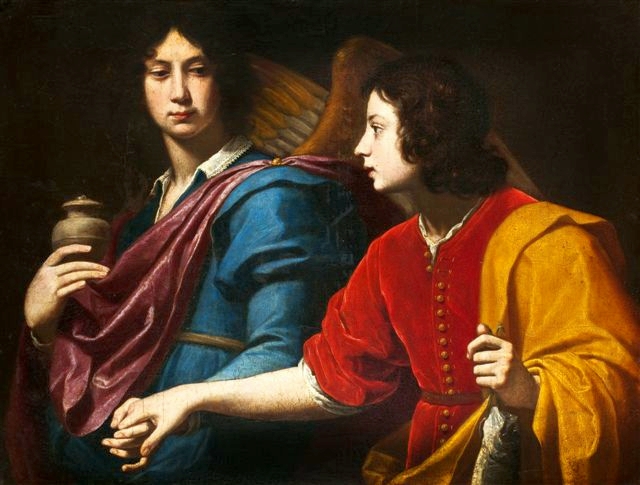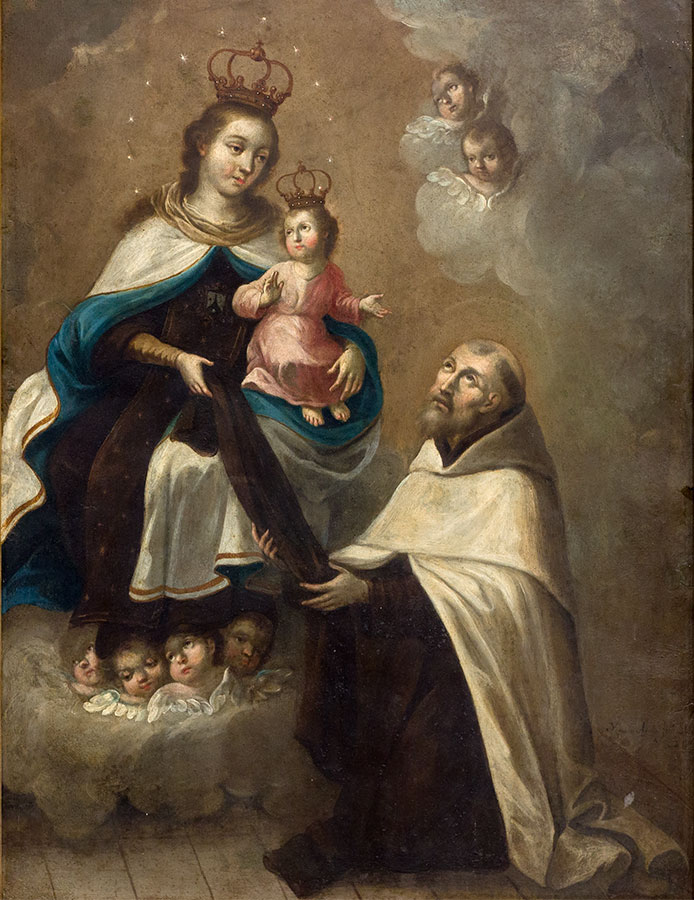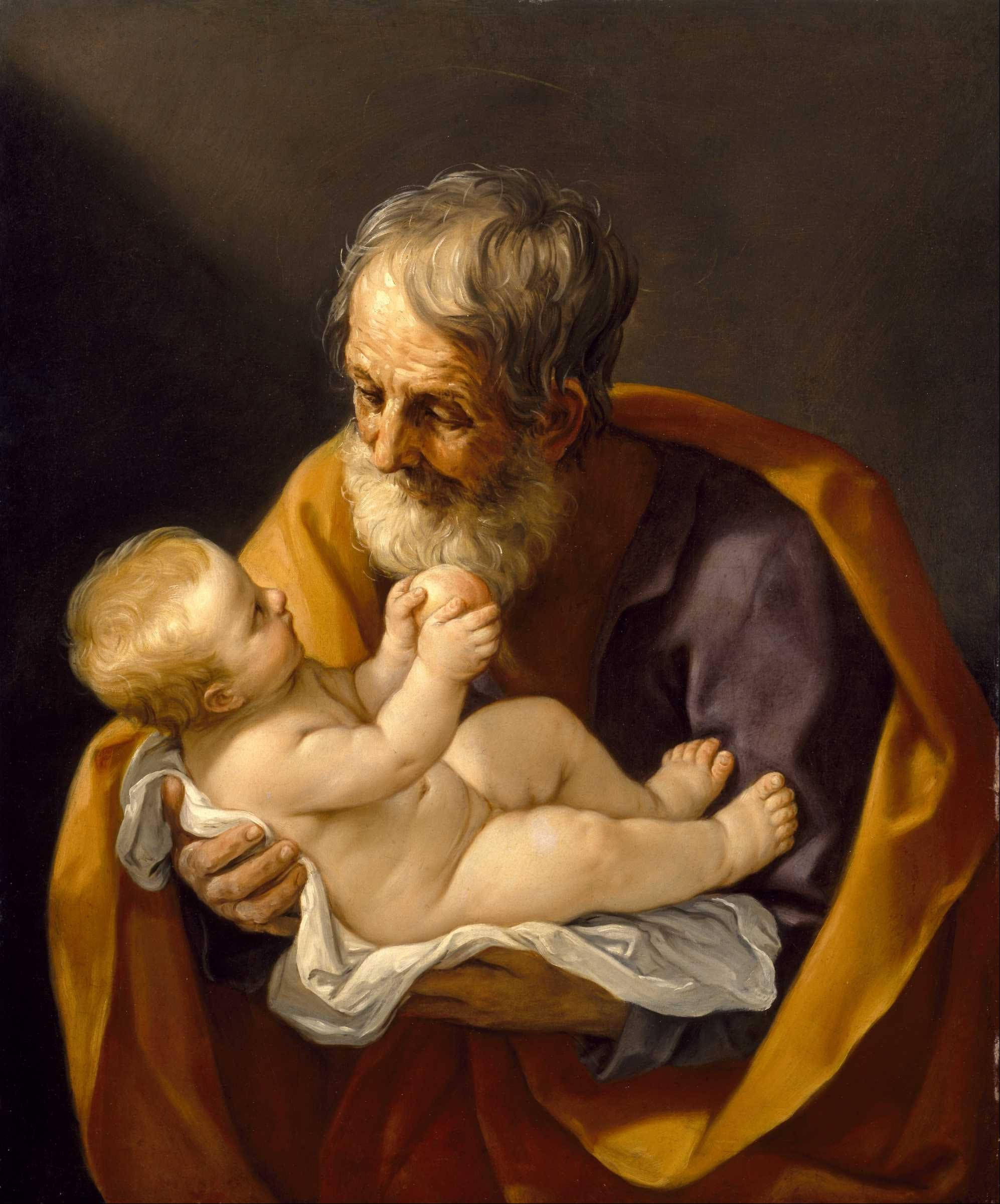Why is St. Joseph the greatest saint after Our Lady? Read this excerpt to discover the evidence for St. Joseph’s preeminence among the saints and unique role in Heaven and on earth.
The eminent sanctity of Saint Joseph has been admitted by Christians down throughout the ages. But the degree of Saint Joseph’s sanctity relative to the other saints had been an open question for centuries. For example, the words of Jesus concerning Saint John the Baptist seemed to be an assertion that Saint John the Baptist held the highest place in heaven after Our Lady: “I tell you, among those born of women none is greater than John” (Lk 7:28).
It is only in recent times that the magisterium of the Catholic Church has settled the question of the relative priority of Saint Joseph to the other saints, after the Blessed Virgin Mary: “There can be no doubt but that Joseph approached as no other person ever could that eminent dignity whereby the Mother of God towers above all creatures.”
Evidence for St. Joseph’s Heavenly Privileges
What is the evidence given for Saint Joseph’s preeminence among the saints?
The principal arguments for this conclusion center upon Saint Joseph’s unique relationship to Mary and Jesus, as well as upon his exalted mission from God concerning them. We can also add arguments from the types of Saint Joseph discussed above.
The Most Chaste Spouse
Pope Leo XIII argues both from Saint Joseph’s relationship to Mary as her spouse, and to Jesus as His guardian: “The special motives for which St. Joseph has been proclaimed Patron of the Church, and from which the Church looks for singular benefit from his patronage and protection, are that Joseph was the spouse of Mary and that he was reputed the father of Jesus Christ. From these sources have sprung his dignity, his holiness, his glory.”
After mentioning the two sources of Saint Joseph’s dignity, Pope Leo argues for Saint Joseph’s eminent dignity from his spousal relationship to Mary:
In truth, the dignity of the Mother of God is so lofty that naught created can rank above it. But as Joseph has been united to the Blessed Virgin by the ties of marriage, it may not be doubted that he approached nearer than any to the eminent dignity by which the Mother of God surpasses so nobly all created natures. For marriage is the most intimate of all unions which from its essence imparts a community of gifts between those that by it are joined together. Thus in giving Joseph the Blessed Virgin as spouse, God appointed him to be not only her life’s companion, the witness of her maidenhood, the protector of her honor, but also, by virtue of the conjugal tie, a participator in her sublime dignity.
Based upon the nature and purpose of marriage, it is evident that marriage demands a sharing of lives and goods. For marriage is, by definition, a kind of communion of persons. In fact, the child itself is shared as a common good of the spouses. And it is evident from Scripture that Saint Joseph did not fall short of the demands of marriage. The Scriptures portray him as being docile and obedient to God’s will even as expressed in dreams. He cared for Mary and Jesus to the point of total sacrifice, believing, with the love that believes all things, in the chastity of his pregnant wife and fleeing to Egypt where he had no work or close relations.
Nor should we underestimate the power of the Virgin Mary’s constant prayers made for the man to whom she owed the greatest gratitude. Finally, since Mary was subject to Joseph as her husband, and since her every action was a source of grace, present and future, for the whole Church, it was necessary that Saint Joseph be granted a sanctity of sufficient loftiness that his direction of the Virgin contribute always and everywhere to the benefit of the Church and the salvation of souls.
Christ’s Foster Father
Next, Pope Leo argues to Saint Joseph’s eminent dignity based upon his relationship to Jesus: “And Joseph shines among all mankind by the most august dignity, since by divine will, he was the guardian of the Son of God and reputed as His father among men. Hence it came about that the Word of God was humbly subject to Joseph, that He obeyed him, and that He rendered to him all those offices that children are bound to render to their parents.”
By a mysterious decree of the divine will, Saint Joseph was appointed the guardian of the Son of God, though Jesus needed no one to protect Him from dangers or provide for Him. He could have exercised His divine power to protect and provide for His human nature better than any creature could have done. Yet, in His wisdom, the Son of God refused to perform any miracle to protect or provide for Himself. For when His apostles sought to defend Him by the sword from His impending passion, Jesus rebuked them saying, “Put your sword back into its place; for all who take the sword will perish by the sword. Do you think that I cannot appeal to my Father, and he will at once send me more than twelve legions of angels?” (Mt 26:52–53).
So too, when Herod threatened Him, He performed no miracle, but rather trusted in Saint Joseph to guard Him. And when He was hungry or thirsty, He waited upon the loving providence of a human father in order to obtain what was necessary for His life. So it was that in the actual order of things, Jesus depended upon Joseph.
Pope Leo adds that Joseph was “reputed as His father among men.” As Jesus’s father, it fell to Joseph to be the first to call Jesus by His name (see Mt 1:21, 25). This is itself astounding, since in the Old Testament, to confer a name on someone indicates authority over and knowledge of the one to whom the name is given, as Adam conferred a name upon each of the animals, and even upon his own wife, Eve.
Moreover, God’s name was so holy and sacred that it was hidden from all but the greatest saints, and when at last it was revealed, it was not to be spoken except once a year by the high priest. And it was God who gave a name to these great ones, such as Abraham and Israel. But here a man calls the Son of God by His name and gives to other men the name by which the Son of God is to be called.
The truth that Joseph was reputed as the father of Jesus before men also means that Joseph received the effective grace to love Jesus as his own son, and that Jesus, besides having a filial affection and piety, honored and was subject to Joseph. It is a difficult thing to love God well without the further complication of loving God as if He were your own child. Yet to Saint Joseph was given the miraculous grace not only to love God with his whole mind, heart, soul, and strength but to be an image of the heavenly Father in His love for His Only-Begotten Son, a grace granted to no other creature save Saint Joseph.
In his human soul and imagination, the image of father which Jesus acquired from His experience was the image of Saint Joseph. And when He thought of God His Father, that thought was always bound up with the human understanding of father He associated with Saint Joseph.
Finally, the Scriptures assert, Jesus was obedient to Joseph (see Lk 2:51). It is certain that Jesus obeyed the will of Joseph perfectly. Consider that every action of Christ had infinite value and contributed to the salvation of the world. With His every action, Jesus was accomplishing the salvation of souls. Yet those actions were often determined by the will of Saint Joseph. Therefore, Saint Joseph must have received grace in such abundance that never did he compromise in the least the salvation of souls. What divine light and love must have dwelt in that holy soul as he guided the Savior of the world and the King of the universe to bring about the greatest common good of all the elect.
The Head of the Holy Family
Last of all, Pope Leo deduces that Saint Joseph, in virtue of his relationship to Mary and Jesus, had the responsibility to care for the Holy Family: “From this two-fold dignity flowed the obligation which nature lays upon the head of families, so that Joseph became the guardian, the administrator, and the legal defender of the divine house whose chief he was. And during the whole course of his life he fulfilled those charges and those duties.”
Joseph was the head of the Holy Family, which was the whole of the Church in seminal form and power. In other words, Joseph tended to the common good of his family upon which depended the good of the entire human family. From these considerations, it is clear that Saint Joseph, after Mary, holds the highest dignity in heaven, and surpasses all the other saints in holiness. And it can be asserted with certitude now who it is that sits at the right and the left hand of the Savior at the heavenly banquet. We can also guess why Jesus said it was not His to give, but His Father in heaven (see Mt 20:23); for these were His parents, and in filial humility, He desired not that He should confer the honor but that His Father in heaven do so.
ooo
This article is taken from a chapter in Saint Joseph: The Man Closest to Christ by Fr. Sebastian Walshe, O.Praem. which is available from TAN Books.


